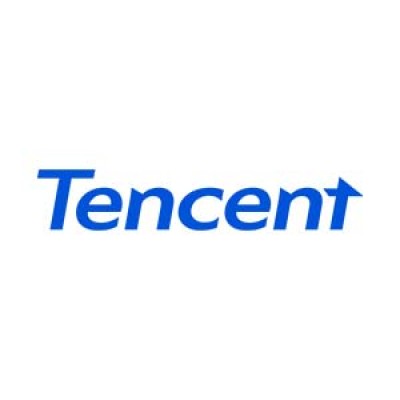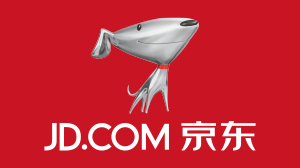The AI Race: Baidu and Tencent's Diverging Paths in a Tech Landscape
May 28, 2025, 3:55 am
In the bustling world of technology, giants like Baidu and Tencent are navigating the choppy waters of artificial intelligence (AI) and automation. Both companies are racing to harness the power of AI, but their journeys are marked by distinct strategies and outcomes.
Baidu recently reported a remarkable 42% jump in first-quarter profit, yet its stock took a dive. The paradox is striking. A profit surge should send shares soaring, but investors reacted with caution. Baidu's shares fell 4% in Hong Kong and 4.3% in New York. The numbers tell a story of potential overshadowed by market skepticism.
Baidu's net profit reached CNY 7.7 billion (USD 1.1 billion) for the first quarter, with revenue climbing 3% to CNY 32.5 billion (USD 4.5 billion). However, this growth pales in comparison to its rivals. Tencent, Alibaba, and JD.Com reported revenue increases of 13%, 7%, and 16%, respectively. In a race where speed matters, Baidu's modest growth feels like running in place.
The heart of Baidu's success lies in its AI-driven initiatives. The company’s core segment, Baidu Core, saw a staggering 48% increase in net profit, driven by AI Cloud. This segment generated CNY 6.7 billion in revenue, a 42% increase year-on-year. AI Cloud now accounts for 26% of Baidu Core's total revenue, up from 20%. This shift indicates a growing reliance on AI solutions, a trend that is hard to ignore.
Baidu's recent advancements include the launch of Ernie 4.5, a multimodal foundation model, and Ernie X1, a reasoning model. These innovations aim to enhance performance while reducing costs. The market's appetite for cost-effective AI solutions is evident, and Baidu is positioning itself to meet this demand.
However, the company faces challenges. Despite its AI Cloud's growth, the online marketing income fell by 6.4% to CNY 16 billion. This decline raises questions about the sustainability of Baidu's revenue streams. The company is pivoting towards AI-generated content, which now makes up 35% of mobile search results. This shift reflects a strategic response to changing user behavior, but it also highlights the risks of relying heavily on a single revenue source.
Meanwhile, Tencent is charting a different course. The company is contemplating workflow changes as 85% of its programmers utilize its AI coding assistant, CodeBuddy. This tool has revolutionized coding efficiency, reducing overall coding time by 40%. Tencent's focus on organizational efficiency is a clear signal of its intent to leverage AI not just for individual productivity but for broader operational improvements.
The release of an upgraded version of CodeBuddy, featuring a new software development agent called Craft, showcases Tencent's commitment to innovation. This autonomous development capability positions Tencent as a leader in the AI coding space. Other tech giants, like JD.Com, are also entering the fray with their own AI coding assistants, but Tencent's early adoption gives it a competitive edge.
As AI agents evolve, the accuracy of these tools is expected to reach 90% for complex interactions. This advancement could make AI coding assistants commercially viable sooner than anticipated. Tencent's proactive approach in this area suggests it is not just keeping pace but potentially setting the pace in the tech landscape.
The divergence in strategies between Baidu and Tencent illustrates the broader dynamics of the tech industry. Baidu is heavily invested in AI Cloud and autonomous driving, with its robotaxi service, Apollo Go, expanding into international markets. The service provided over 1.4 million rides in the first quarter, a 75% increase from the previous year. However, the path to profitability remains uncertain, as Baidu navigates the complexities of commercializing its AI innovations.
In contrast, Tencent's focus on enhancing developer productivity through AI tools positions it to streamline operations and drive efficiency. The company is not just reacting to market trends; it is actively shaping them. By prioritizing organizational efficiency, Tencent is laying the groundwork for sustainable growth.
Both companies are in a race against time. The tech landscape is evolving rapidly, and the winners will be those who can adapt quickly. Baidu's heavy investments in AI and autonomous driving could pay off, but the company must address its revenue challenges. Tencent, on the other hand, is leveraging AI to enhance its core operations, potentially setting the stage for long-term success.
In conclusion, the AI race is far from over. Baidu and Tencent are two sides of the same coin, each with its own strengths and weaknesses. As they navigate this complex landscape, the outcomes will depend on their ability to innovate, adapt, and respond to market demands. The future of tech is bright, but it requires agility and foresight. The journey ahead will be a test of resilience and vision, and only time will reveal who will emerge victorious in this high-stakes game.
Baidu recently reported a remarkable 42% jump in first-quarter profit, yet its stock took a dive. The paradox is striking. A profit surge should send shares soaring, but investors reacted with caution. Baidu's shares fell 4% in Hong Kong and 4.3% in New York. The numbers tell a story of potential overshadowed by market skepticism.
Baidu's net profit reached CNY 7.7 billion (USD 1.1 billion) for the first quarter, with revenue climbing 3% to CNY 32.5 billion (USD 4.5 billion). However, this growth pales in comparison to its rivals. Tencent, Alibaba, and JD.Com reported revenue increases of 13%, 7%, and 16%, respectively. In a race where speed matters, Baidu's modest growth feels like running in place.
The heart of Baidu's success lies in its AI-driven initiatives. The company’s core segment, Baidu Core, saw a staggering 48% increase in net profit, driven by AI Cloud. This segment generated CNY 6.7 billion in revenue, a 42% increase year-on-year. AI Cloud now accounts for 26% of Baidu Core's total revenue, up from 20%. This shift indicates a growing reliance on AI solutions, a trend that is hard to ignore.
Baidu's recent advancements include the launch of Ernie 4.5, a multimodal foundation model, and Ernie X1, a reasoning model. These innovations aim to enhance performance while reducing costs. The market's appetite for cost-effective AI solutions is evident, and Baidu is positioning itself to meet this demand.
However, the company faces challenges. Despite its AI Cloud's growth, the online marketing income fell by 6.4% to CNY 16 billion. This decline raises questions about the sustainability of Baidu's revenue streams. The company is pivoting towards AI-generated content, which now makes up 35% of mobile search results. This shift reflects a strategic response to changing user behavior, but it also highlights the risks of relying heavily on a single revenue source.
Meanwhile, Tencent is charting a different course. The company is contemplating workflow changes as 85% of its programmers utilize its AI coding assistant, CodeBuddy. This tool has revolutionized coding efficiency, reducing overall coding time by 40%. Tencent's focus on organizational efficiency is a clear signal of its intent to leverage AI not just for individual productivity but for broader operational improvements.
The release of an upgraded version of CodeBuddy, featuring a new software development agent called Craft, showcases Tencent's commitment to innovation. This autonomous development capability positions Tencent as a leader in the AI coding space. Other tech giants, like JD.Com, are also entering the fray with their own AI coding assistants, but Tencent's early adoption gives it a competitive edge.
As AI agents evolve, the accuracy of these tools is expected to reach 90% for complex interactions. This advancement could make AI coding assistants commercially viable sooner than anticipated. Tencent's proactive approach in this area suggests it is not just keeping pace but potentially setting the pace in the tech landscape.
The divergence in strategies between Baidu and Tencent illustrates the broader dynamics of the tech industry. Baidu is heavily invested in AI Cloud and autonomous driving, with its robotaxi service, Apollo Go, expanding into international markets. The service provided over 1.4 million rides in the first quarter, a 75% increase from the previous year. However, the path to profitability remains uncertain, as Baidu navigates the complexities of commercializing its AI innovations.
In contrast, Tencent's focus on enhancing developer productivity through AI tools positions it to streamline operations and drive efficiency. The company is not just reacting to market trends; it is actively shaping them. By prioritizing organizational efficiency, Tencent is laying the groundwork for sustainable growth.
Both companies are in a race against time. The tech landscape is evolving rapidly, and the winners will be those who can adapt quickly. Baidu's heavy investments in AI and autonomous driving could pay off, but the company must address its revenue challenges. Tencent, on the other hand, is leveraging AI to enhance its core operations, potentially setting the stage for long-term success.
In conclusion, the AI race is far from over. Baidu and Tencent are two sides of the same coin, each with its own strengths and weaknesses. As they navigate this complex landscape, the outcomes will depend on their ability to innovate, adapt, and respond to market demands. The future of tech is bright, but it requires agility and foresight. The journey ahead will be a test of resilience and vision, and only time will reveal who will emerge victorious in this high-stakes game.

